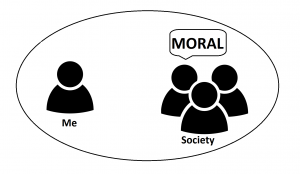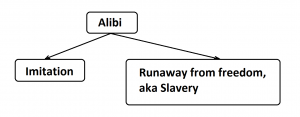10 Things To Know About Making Decisions. Part 2

Every day we make a gazillion of decisions – what to eat, when to get up, what to buy, how to plan the day, what to answer when being asked etc. Sometimes our decisions affect not only us, but also other people, their present and future.
Our doubts and difficulties in decision making drain our energy and kill our productivity.
After years of having issues with making important decisions, I learnt a lot and came up with ten key points I want to share with you. This is Part 2 of this post. Part 1 can be found here.
- Bear in mind that each decision has its price. I talk about the efforts to make this decision. Now I will pull Captain Obvious: your efforts to make a decision should not outweigh the benefits of the decision. A great example: a company has a budget of 2 thousand dollars and don’t have a plan ready on how to spend this amount. They hire consultants to help to make this decision. Cost of their services was… 50,000 dollars! You think it is impossible? It is a true story. I will not name this blue-chip company, but such an anti-record took place more than 10 years ago.
- Don’t try to change your decision at the last moment. Don’t change horses in midstream. The best way to jeopardize anything is to make major changes in the activity which has begun. If you made up your mind and already started executing your decision, don’t change until done.
- For any decision made by someone else there is a point of no return. I mean if you delegate decision making to someone else, there is always a certain point of time after which you will have very little or no impact on the result.
- Intuitive decision. Everybody is aware of how to make logical decisions. There are hundreds of books written on this topic and tons of practical courses offered. But nobody teaches us how to make intuitive ones. Too bad. Because almost everybody can recall at least one case when they followed the intuitive decision even if it seemed logically wrong – and were right. Yes, sometimes we need to follow our intuition. That is why I would like to share a technique how to do that. Unfortunately, I don’t know the name of the author (I have heard this quite long ago from a person who also wasn’t an author), but I admire his or her wisdom – this technique works!
You need to choose one of the several options. You concentrate on your feelings in the area of your solar plexus. And now you walk through your options one by one. And watch your solar plexus feelings. You should choose the option giving the most comfortable feeling. - Some decisions must be made quickly (example: you see a girl of your dream and you have doubts to get acquainted right now or wait for a better moment. This is an example of do-it-right-now things, make this decision to approach this girl quick!). Some decisions must be postponed, or, ideally, never made (let’s return back to the girl of your dream. Say, you married her. And today you have a quarrel. She throws plates into you. You are both shouting… Finally one of you comes to a conclusion that a divorce is the only way to resolve the problem. All emotional decisions like this one belong to the kind of decisions you’d better postpone and preferably avoid).
You should strive to get a level of wisdom that you can distinguish the first (do-it-right-now decisions) from the latter (better-postpone ones).



